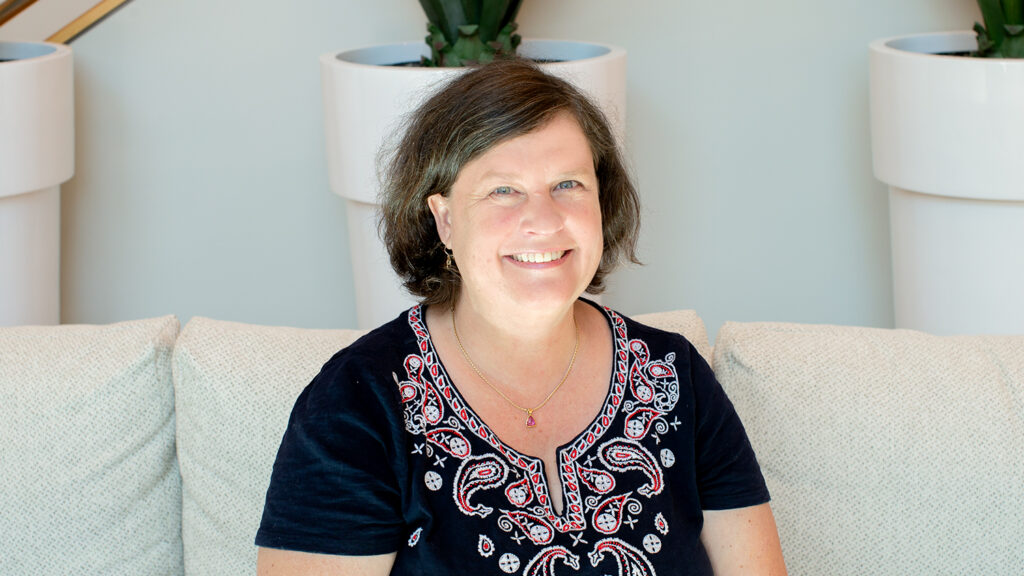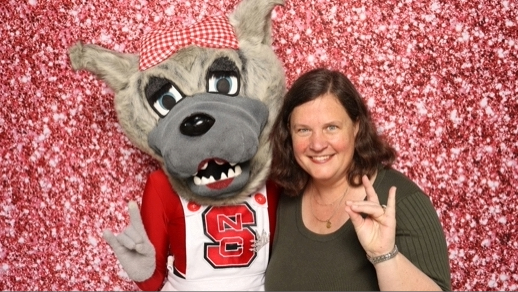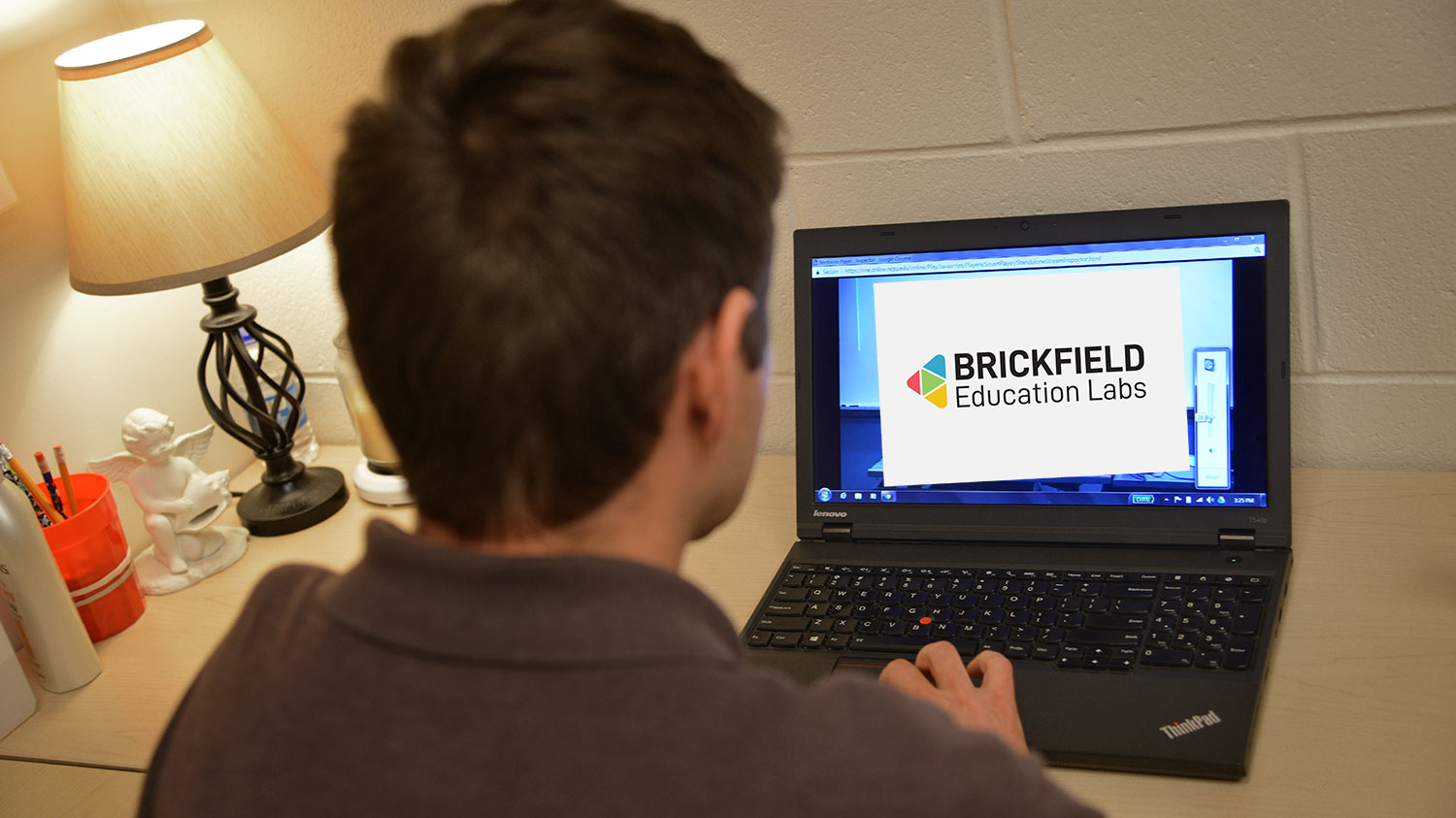Meet DELTA Faculty Fellow Wendy Krause
Enriching the Student Experience Through Educational Technology

DELTA Faculty Fellow Wendy Krause is a self-described DELTA workshop aficionado. Over the years she has attended dozens of DELTA workshops — some twice — particularly when the COVID-19 pandemic compelled instructors to take their courses online.
“Once we went fully online, my pedagogical interests shifted dramatically,” Krause explained. “I was constantly asking myself, how can I better connect with my students and make my content more engaging?”
A key solution, she discovered, was DELTA’s Faculty Fellows Grant program, which champions innovative technological pedagogy by fostering the exchange of ideas and interdisciplinary partnerships among NC State faculty with support from DELTA staff.
Fostering Pedagogical Innovation
Krause is an Associate Professor and the Interim Director of Undergraduate Programs in the Department of Textile Engineering, Chemistry and Science in the Wilson College of Textiles, where she has been on the faculty for 20 years.
She is an expert in polymer science, and her research focuses on structure-property relationships of macromolecules (polymers). Currently, she is focused on natural polymers from renewable sources, particularly bacterial cellulose. Krause teaches courses in polymer science & engineering and polymeric biomaterials at both the undergraduate and graduate levels.
To foster innovative learning experiences for her students, Krause completed the Course Quality Program at NC State, where she learned to apply the Quality Matters (QM) rubric to her courses. These DELTA-designed programs support the development of high-quality online and hybrid learning environments in which NC State students can thrive.
Krause was encouraged to apply for a DELTA Faculty Fellowship by Bethany Smith, DELTA Director of Digital Learning, and Teaching Professor Julianne Treme, a longtime colleague whose skillful use of educational technology was inspirational.

As a Faculty Fellow, Krause partnered with her DELTA team to transition away from traditional exams to online, asynchronous assessments, first using Moodle Quizzes and later Gradescope. She found that breaking large exams into more manageable chunks resulted in significantly reduced exam anxiety for students in her TE 200: Introduction to Polymer Science and Engineering course.
Krause has not returned to using traditional pedagogical methods.
“I shifted completely away from exams and essays and started doing more project-based work, such as developing a course website,” Krause explained. “I have found such a reduction in student anxiety by moving away from in-person exams that I never plan to return to that format.”
Leveraging Instructional Tools
In addition to her Faculty Fellowship, Krause has received several DELTA Instructional Tools Grants. These projects allowed her to deepen her understanding and fine tune her usage of Gradescope, Google Apps for Education, HP5 in Moodle, Pressbook and WolfWare in WordPress.
These educational technologies have been essential to creating course content that is both interesting and effective for her students in an online learning environment. Krause employs these tools to keep her students consistently engaged throughout the semester.
Krause is also deeply committed to fostering equity and belonging in her classes. “I try to make sure my courses are as equitable as possible and that I am mindful of the diversity of students and their needs,” she said.
Her commitment includes supporting textbook equity by using a free, open source required option, Pressbook for TE 200. This source offers interactive and manageable content that prioritizes accessibility for all students.
“An important aspect of an equitable course is affordability, particularly with regard to textbooks and educational technology, which is how I became interested in Open Educational Resources (OER) and Open Pedagogy,” Krause explained. “I hope to encourage other faculty members to consider using and creating OER.”
Going forward, Krause is excited to see how learning technologies will continue to evolve and how she and her fellow instructors can learn and implement these new tools for teaching in the coming years.
“The number one thing I hope to accomplish as a Faculty Fellow is to encourage more faculty to interact with DELTA and its amazing resources,” she said.
A DELTA Grant For Every Type of Course
For instructors of all kinds of courses, the DELTA Grants program offers solutions to a variety of pedagogical challenges, from analyzing a golf swing to interactive flash cards and gamification of learning modules. Explore some of DELTA’s innovative solutions to instructional challenges.
Whether leading workshops on NC State’s campus, sharing best practices via articles or presenting at conferences, DELTA Faculty Fellows are constantly improving and innovating. Interested in collaborating? Faculty Fellows Grants.


